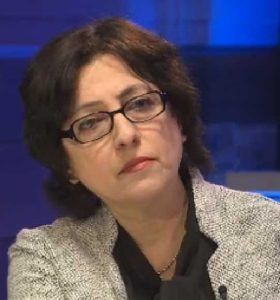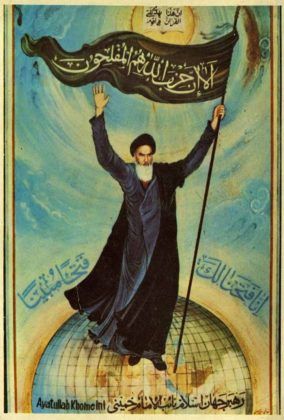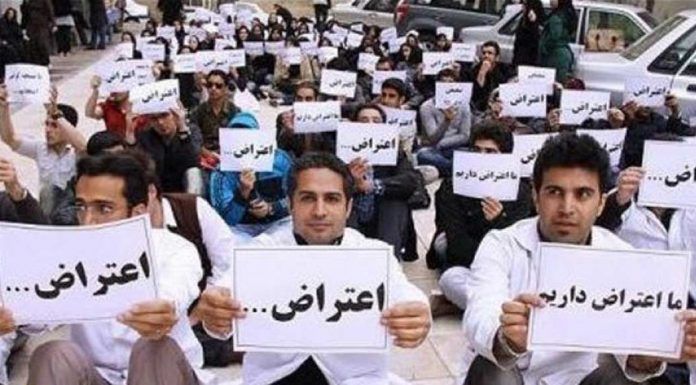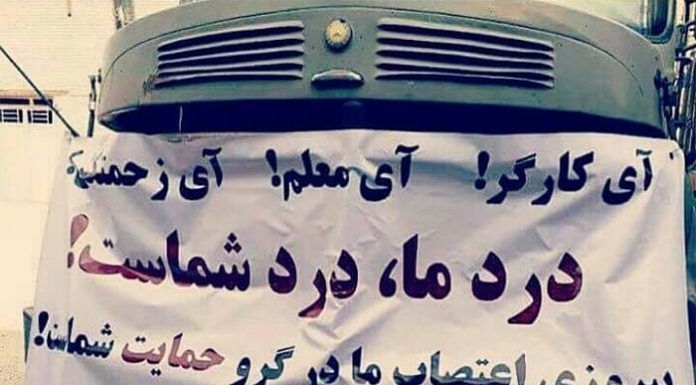By Elahe Boghrat
Editor-in-Chief, Kayhan London

The prevailing political climate in Iran and indeed the entire region is undoubtedly very complex. However, when placed within a broader historical context, the underlying cause of the current geopolitical situation doesn’t appear that complicated. To start with, the extraordinary developments in information and communications technology (ICT) have reduced the world to a global village. Also, while humanity’s higher moral, ethical and spiritual aspirations have remained constant through centuries, its understanding and interpretation of social and political principles have continually changed.
We can, therefore, say with utmost confidence that a bright future awaits Iran, though the road to democracy will be perilous and costly. However, the Iranian nation has already paid a heavy price and endured great hardships in the past four decades.
In my view, the 1979 Islamic Revolution, engineered by forces inside and outside Iran, was one of the most unfortunate and catastrophic events in history. The Islamic Republic regime ushered in a new era in Iranian politics and unleashed a violent and brutal attack on the progressive principles and achievements of the Iranian Constitutional Revolution (1905-1911). The event was not only detrimental to the country and the nation but, also, triggered profound changes in the region.
Advocating global Islamism and sponsoring terrorism have been two of the most critical objectives of the Islamic Revolution. Houshang Vaziri, the late editor-in-chief of Kayhan London, coined the phrase “The Islamic Revolution Calamity” which accurately encapsulates the true essence of the reactionary and anti-modernism movement that started in the Middle East, particularly in the Islamic countries, and spread throughout the world. It was able to gain power and establish an Islamic state in one of the most strategically and geopolitically significant countries in the region.
When it comes to the genesis of the Islamic Republic, many people prefer bizarre theories to a simple explanation. They fail to realize or are unwilling to recognize the fact that the Iranian regime is an integral part of the long, violent and bloody legacy of political Islam.
Mainstream political parties on the right and the left and the nationalist-religious activists or a coalition of these groups in Iran have always accused foreign powers of “engineering” the revolution. There are also those who claim moral ownership over the 1979 Islamic Revolution, which in their view was “hijacked” by reactionary religious elements. Moreover, many Iranians in their thirties, who call themselves the “burned generation,” accuse the “pseudo-intellectuals” and street protesters of helping to create the Islamic Republic. There are still others who espouse the absurd notion that the late Shah “enabled” the Islamic Revolution.
Ultimately, the beast that was born in Iran has devoured the region and a vast part of the world in the past four decades. Immigration, internet, and social media have also helped to globalize this monstrosity. Although a relatively small number of the two billion Muslims in the world are Islamists, this tiny minority can, nevertheless, inflict significant harm. The September 11 attacks on the United States are the most notable example of such atrocities in modern times.
Regional and world powers can, undoubtedly, exploit Islamic fundamentalism and the beliefs of ordinary Muslims. That is not the issue here. I firmly believe that, sooner or later, the Middle East and all Islamic countries must abandon their ancient beliefs and medieval practices. It is utterly absurd to claim to be the cradle of civilization, embrace Western technology and know-how, and at the same time adhere to antiquated and archaic political structures and principles.
The erroneous notion that such countries are incapable of practicing democracy and upholding human rights because these concepts are not part of their political and cultural traditions is spewed by those who support such regimes as the Islamic Republic. It is, therefore, in their interest to perpetuate the status quo. It took a devastating world war to eradicate the cancer of fascism and Nazism, which were born and bred in the cradles of European civilization. Therefore, the argument that the Iranian people and other Middle Eastern nations should first be educated about democracy and human rights before any meaningful political changes can take place in their countries doesn’t hold water.
For those who are wondering about the future of the Islamic Republic, I say with great confidence that it will collapse. There is no place for the regime in modern Iranian society and in the international community. The Islamic Republic is the worst possible form of theocracy. The Iranian nation is young and full of potential. A regime that has squandered the country’s financial resources and set out to eradicate its cultural heritage is doomed. The question is not if, but when and how the Islamic Republic will fall.
So, what is our responsibility? If this question is posed by those who consider themselves to be “intellectuals,” “political activists” and or “politicians,” then they must also know that the Islamic Republic is nearing its end. All ideological states eventually die because they oppose the spirit of freedom and human rights. So the first step is the separation of religion and state which must be guaranteed in no uncertain terms by the constitution. The executive, judicial and legislative branches of the government must recognize and uphold this article. Faith and religious beliefs are personal matters.
The separation of religion and state and the safeguarding of the country against an ideological onslaught are critical issues that can galvanize all forces which advocate the establishment of democracy in Iran. This common goal would challenge the defective nature and inhumane structure of a theocratic rule. A person who supports the separation of religion and state cannot, therefore, urge people to take part in elections in a theocratic governing system. A secular state, however, allows free elections and formation of an independent government which guarantees the civil rights of all its citizens.
People would play a critical and active role in rebuilding their country if they lived under a governing system that safeguarded their human rights and acknowledged their potentials and capabilities. Political movements must, therefore, focus their energy on protecting the civil and legal rights of the people.
Our country is still in the clutches of the Islamic Republic, which has been able to survive partly due to the naivete and shortsightedness of the self-absorbed political forces inside and outside Iran, some of whom are mainly concerned about protecting their political interest. These groups can achieve solidarity and lasting cooperation only when they realize that the Islamic Republic is nearing its end, and decide to put the welfare of the country and Iranian people ahead of their own. By self-interest, I don’t mean financial gain only but also the inability to commit politically — such as the failure to admit that the Iranian regime cannot be reformed. Sitting on the fence to ensure one’s political survival does not serve the country and the nation well.
If we truly believe in democracy and human rights, then we should be able to unite and focus our efforts on defending these principles. This is a straightforward proposition, especially when it comes to confronting the Islamic Republic regime. Irrespective of its nature, a theocracy belongs to the medieval era and has no place in the modern world.
The Iranian people need an inclusive governing system that protects the rights of all citizens irrespective of their gender, race, ethnicity and religious beliefs. They long for a government that makes the fair distribution of the country’s wealth its priority. This common goal could unify various political factions in their opposition to theocratic rule in Iran and pave the way for these groups to compete in an open, free and democratic political arena. We can learn from other nations which have successfully transformed their political systems. We can also bring about change under the banner of national unity, civic duty, and human dignity.
Alas, some people are still wrestling with the same old question, namely; “The Islamic Republic, yes or no?” with one major difference that those in the “yes” camp must have realized by now that the country and its people have paid a heavy price in the past 40 years. Even the most staunch supporters of the regime admit that those in the “no” camp heavily outnumber the “yes” group. It is abundantly clear that the future political direction will no longer revolve around the idea of “reforms” and a “kinder and gentler Islamic Republic.”
Pro-democracy groups have the responsibility of ensuring that any system that replaces the theocratic rule of the Islamic Republic must promote and safeguard the democratic principles and the human rights of all people.
Note: This editorial first appeared in the October 9 issue of the online Mihan newspaper.
Translated from Persian by Fardine Hamidi





